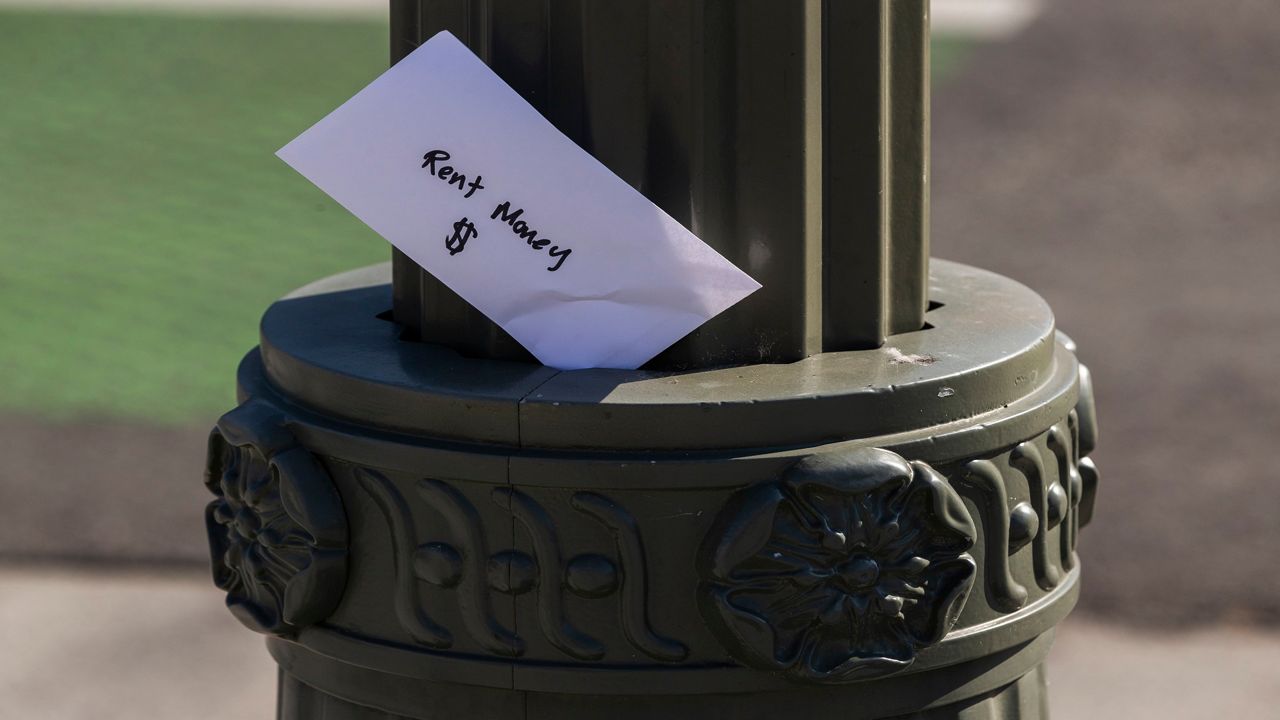LOUISVILLE, Ky. — Congress on Monday passed a $900 billion COVID-19 relief package that will send much needed federal dollars to ailing Americans as the pandemic continues to rage.
"As the American people continue battling the coronavirus this holiday season, they will not be on their own," Senate Majority Leader Mitch McConnell tweeted late Sunday. "Congress has just reached an agreement. We will pass another rescue package ASAP. More help is on the way."
The spending bill, which includes $600 direct payments to most Americans, renews supplemental unemployment insurance benefits, and revives the Paycheck Protection Program (PPP) for small businesses, comes less than two weeks before a raft of pandemic relief measures were set to expire.
The timing is crucial for Jhala Fisher, a 26-year-old South Louisville woman who has been fighting eviction from her one-bedroom apartment for months. This fall, Fisher opted into the eviction moratorium put in place by the Centers for Disease Control and Prevention (CDC), which prevents eviction for non-payment of rent through the end of the year. The new bill extends the moratorium through January 31.
“I'm happy that I have a little bit longer time to find a place,” Fisher said, “but that’s only next month.”
In addition to the extended moratorium, the package includes $25 billion for eviction relief. Clare Wallace, Executive Director of South Louisville Community Ministries, said that’s “too little and too late.” Wallace, whose nonprofit helps Louisvillians make rent payments and fill their pantries with food, cited figures from The National Low Income Housing Coalition, which estimates Americans will have a rent shortfall of between $30 million and $70 million by January.
By waiting until the last minute to pass the relief package, Congress also ensured a gap between existing COVID-19 relief funding running out and new funding being in place. “This assistance will also not be available when they need it, which is now,” Wallace said. “Today was the first day that I am having to tell people that there is literally nothing we can do to help, and I expect that will be the case for at least another month as agreements are signed and processes are put in place.”
Fisher, who was unable to pay her rent this spring after losing her job as a home health care worker, is one of more than 100,000 Kentuckians at risk of eviction. Though she’s still in her apartment near Iroquois Park, she said the eviction is preventing her from moving on.
“It's hard to find another place because of the eviction,” she said. “What do I tell them? ‘Oh, I didn't pay my rent because of corona.’ Then they're like, ‘No, I don't think we can work with you.’ I’ve had that conversation with a lot of rental managers.”
If she does find a new apartment, Fisher will need to have saved up enough money to cover the typical costs of moving in. She said the $600 direct stimulus payment should help. “I’m probably just going to use it for a down payment,” she said.
The direct payments are half of what they were in the CARES Act, the $2.2 trillion relief bill passed in March. They’re also less than what some lawmakers have called for. Earlier this month, Republican Sen. Josh Hawley and Independent Sen. Bernie Sanders teamed up to call for $1,200 direct payments to most adults.
“The $600 stimulus check will help, but for our clients it would have helped if it had been more,” said Stewart Pope, Advocacy Director for Legal Aid Society in Louisville. Pope said he’s spent the pandemic helping people who are out of work, falling behind on rent and utilities, and in need of significant help. He said the additional unemployment benefits of $300 per week will be “very helpful,” but criticized the one-month extension of the CDC’s eviction moratorium.
“What we’ve got there is a short punt,” Pope said.
In addition to the help for individuals, the relief bill will help small businesses harmed by the pandemic with new, forgivable PPP loans. In his press briefing Monday, Kentucky Gov. Andy Beshear said the $284 billion earmarked for the PPP program is low.
"I will say that I don't think it's going to be enough on the small business side," he said. "I’m certainly looking at additional relief that we can provide here in Kentucky to help keep as many open and also stimulate the economy," he said.
Among the other provisions of the relief bill is nearly $82 billion for schools, including universities and K-12 schools. The money can be spent on technology needed for distance learning, programs to address “leaning loss,” and mental health services, among other things.
In a joint statement Sunday, House Speaker Nancy Pelosi and Senate Democratic Leader Chuck Schumer said that the money will go toward “HVAC repair and replacement to mitigate virus transmission and reopen classrooms.”
Erica Grossberg, a Spanish teacher at Louisville’s Ballard High School, said she’s glad to see the federal government dedicate money to reopening schools but wishes lawmakers had acted sooner.
“When they were saying in July that schools had to open, no one was willing to give us the money we needed,” she said. Now she fears the funding is “too late.”



